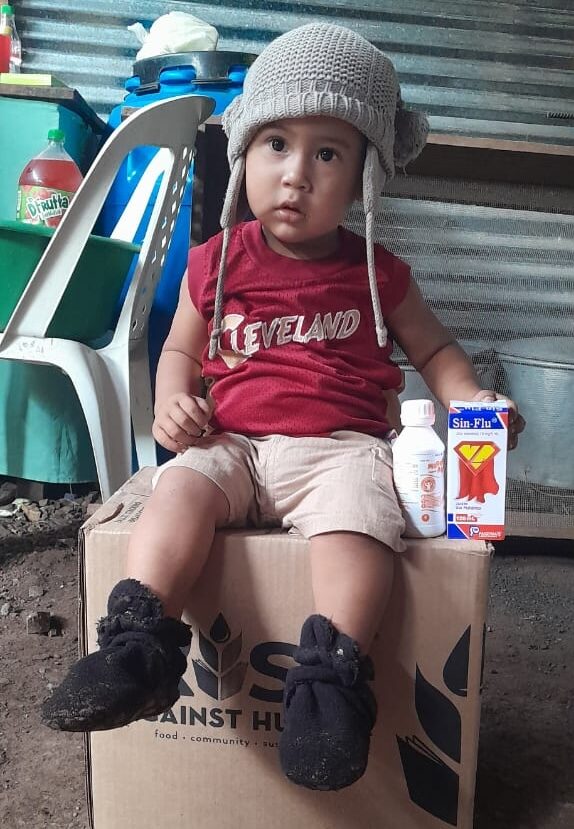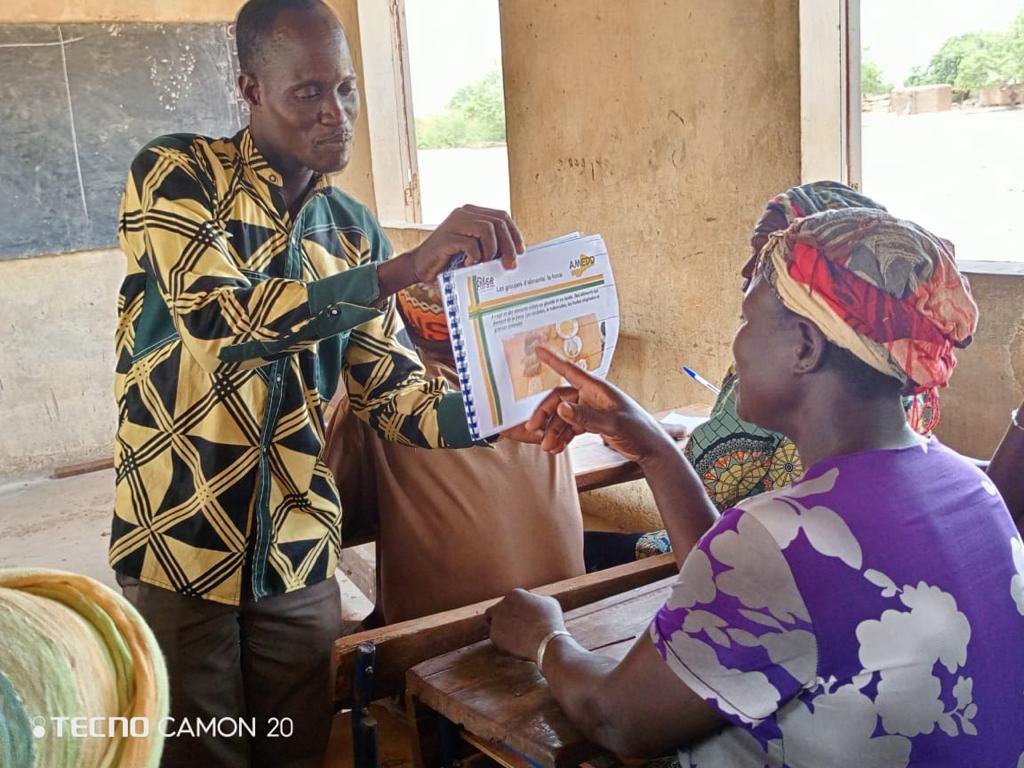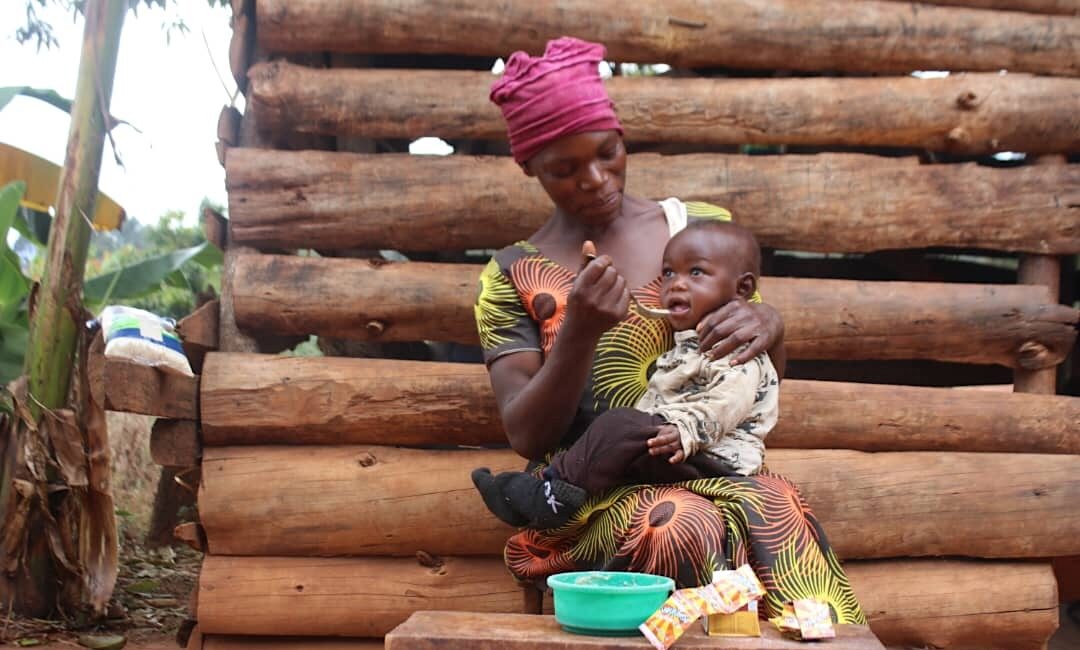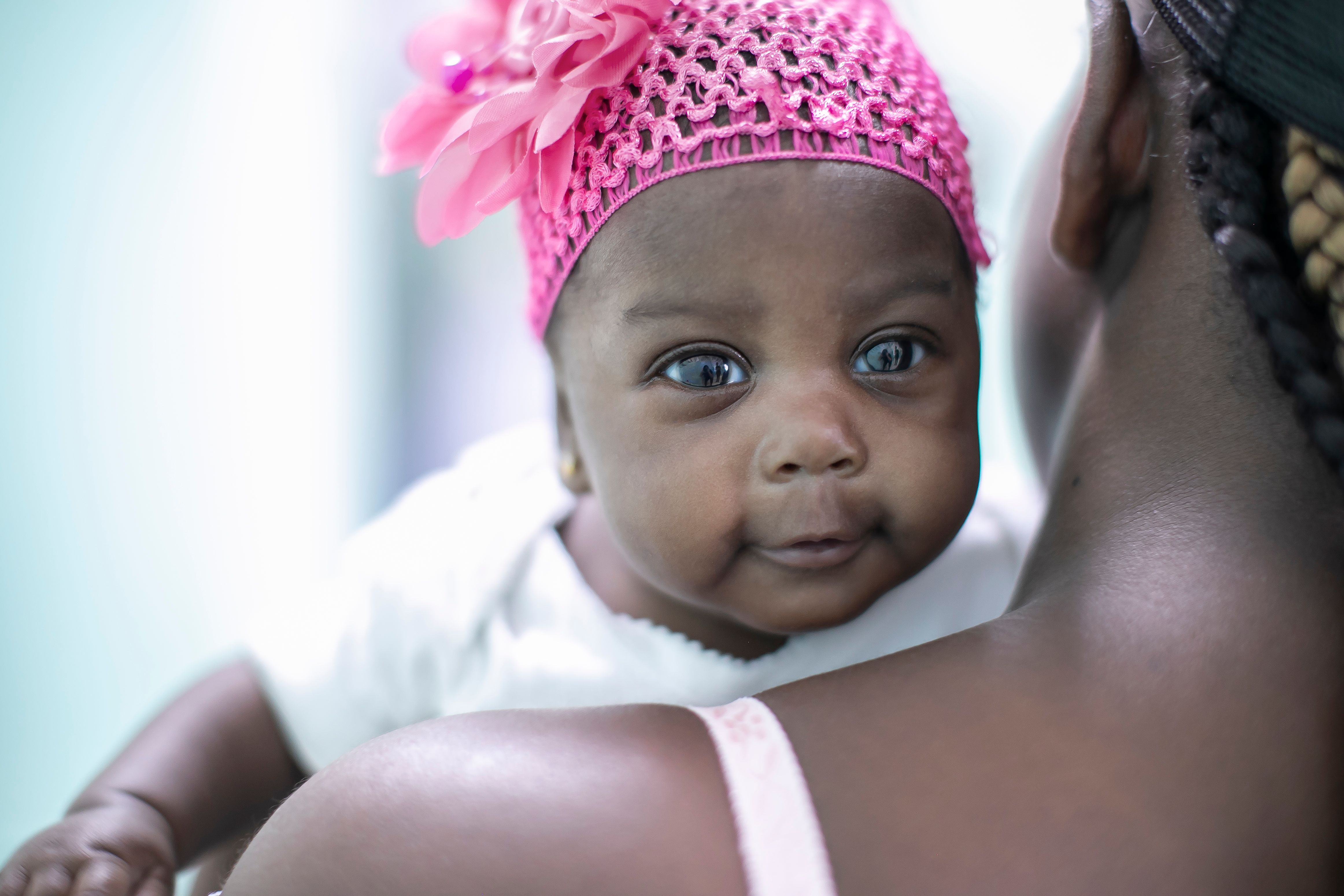Did you know that the first 1,000 days of life are crucial for building a foundation for a healthy, productive life? While proper health and development are critical throughout a person’s life, research has shown that the first 1,000 days have a lifelong impact. This directly relates to our work to end global hunger! When addressing food and nutrition insecurity, it is vital to implement programs that support the health and nutrition of infants and children as it can impact the rest of their lives. Learn more about what exactly the First 1,000 Days is, its importance and how Rise Against Hunger addresses it below!
What is the First 1,000 Days?
The First 1,000 Days is a critical period that begins at conception and spans to a child’s second birthday. During this time, a nurturing environment that addresses all basic needs — including adequate nutrition, safe and secure surroundings, responsive caregiving, healthcare, and opportunities for stimulation and early learning — is crucial for optimal growth and development.
Why are the First 1,000 Days important?
 The First 1,000 Days are a window of opportunity that can significantly impact a child’s future. According to the World Health Organization (WHO), 80% of brain development occurs during the first three years of life, making interventions during this period transformative.Adequate nutrition is very important during the First 1,000 Days! This is vital for physical growth, brain development and overall health. Conversely, malnutrition during this time can lead to irreversible consequences, including stunted growth, cognitive impairments and an increased risk of chronic diseases later in life.
The First 1,000 Days are a window of opportunity that can significantly impact a child’s future. According to the World Health Organization (WHO), 80% of brain development occurs during the first three years of life, making interventions during this period transformative.Adequate nutrition is very important during the First 1,000 Days! This is vital for physical growth, brain development and overall health. Conversely, malnutrition during this time can lead to irreversible consequences, including stunted growth, cognitive impairments and an increased risk of chronic diseases later in life.
How do Rise Against Hunger’s programs support the First 1,000 Days?
At Rise Against Hunger, we recognize the importance of the First 1,000 Days and have embedded it into our projects as part of ensuring good nutrition across a person’s lifetime — even beyond this crucial window. Our programs support improved nutrition during (and after) the First 1,000 Days in the following ways:
Nutritious Meals:
Our in-country partners often distribute our meals as take-home rations to pregnant and lactating mothers, as well as their young children, to support their needs. These meals supplement their daily diets, providing essential nutrients like protein, iron, iodine, vitamin A, zinc and folic acid — all critical for preventing anemia, cognitive delays, boosting immunity, ensuring proper brain development and supporting growth.Many Rise Against Hunger meals are also distributed in school settings. These school feeding programs help adolescent girls stay in school, reducing early pregnancy and prolonging the growth period prior to having children. School meals can also sometimes be taken home to younger siblings, including infants and toddlers.
Emergency Response:
During emergencies, our response efforts prioritize addressing malnutrition in vulnerable populations. In South Sudan, we supported a Malnutrition Therapeutic Feeding Project that utilized ready-to-use therapeutic food to treat severe and moderate malnutrition in 650 children under five.Additionally, since 2022, Rise Against Hunger Italia has been working with partners in Western Europe to support those displaced by the conflict in Ukraine. Rise Against Hunger food kits have been packaged and distributed to ensure those affected have the nutrition they need. As part of this response, we have provided baby food to support families in feeding their infants throughout the crisis.
Empowering Communities:
Our Empowering Communities sustainable agriculture and income-generating projects also support the First 1,000 Days. These projects include community nutrition education programs to address knowledge gaps and cultural beliefs related to optimal practices. Our implementing partners conduct training and counseling on nutrition for lactating and pregnant women, as well as children under age 5. These learning sessions, facilitated through Care Groups, Village Savings and Loan Associations and farmer groups, cover topics including breastfeeding and nutrient-rich food for developing brains. The global Infant and Young Child Feeding Counseling Cards, which are visual and translated into multiple languages, are used as a valuable tool to promote proper breastfeeding techniques and complementary feeding best practices. These trainings help increase understanding of the importance of proper nutrition both during the first 1,000 days and across a lifespan.
Holistic Approach:
While the First 1,000 Days are critical, we also understand that good nutrition is essential throughout a person’s life. Therefore, across our programs, we take a holistic approach that includes male heads of households (often the decision-makers) and women, supporting their immediate and future nutrition needs. Incorporating this gender-based lens into our programming provides a more inclusive caregiver approach to nutrition and relieves the burden from mothers alone.Many of our projects work to address food security at the household level, too. This also supports a holistic approach as it ensures adequate nutrition for those during the first 1,000 days and beyond. When access to diverse, nutrient-rich foods is increased at the household level, entire families, including pregnant and lactating women, benefit.


